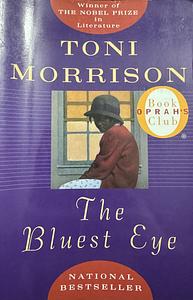Take a photo of a barcode or cover
dark
reflective
fast-paced
challenging
dark
reflective
sad
tense
medium-paced
Plot or Character Driven:
A mix
Strong character development:
Yes
Loveable characters:
Complicated
Flaws of characters a main focus:
Yes
Graphic: Animal cruelty, Animal death, Body shaming, Child abuse, Incest, Pedophilia, Racism, Rape, Sexual assault, Sexual violence
dark
emotional
reflective
fast-paced
Plot or Character Driven:
Character
Strong character development:
Complicated
Loveable characters:
Complicated
Diverse cast of characters:
Yes
Flaws of characters a main focus:
Yes
This was not an easy or fun read, but I will be carrying with me the truths within this fiction.
Graphic: Child abuse, Incest, Pedophilia, Racial slurs, Racism, Rape, Sexual assault
Moderate: Domestic abuse, Mental illness, Misogyny, Violence
dark
emotional
sad
medium-paced
Plot or Character Driven:
Plot
Strong character development:
Complicated
Diverse cast of characters:
Yes
Flaws of characters a main focus:
Yes
Certain seeds it will not nurture, certain fruit it will not bear, and when the land kills of its own volition, we acquiesce and say the victim had no right to live.
this novel talks about a lot of things, one of them being how racism can totally destroy someone’s mental state. take Pecola for example, she keeps praying for her eyes to turn blue because she believes that if her eyes were blue, she’d look prettier, and if she looked prettier, people would finally love her.
besides Pecola, there are also Claudia and Frieda, who are victims of racism too. but unlike Pecola, they manage to grow and move past those painful experiences. they even become braver, more confident, and kind of puzzled by how people could look down on them just because of their skin color.
aside from the three main characters—Pecola, Claudia, and Frieda—there are other characters who also experience the impact of racism which deeply affects their identity and how they see themselves and the world around them. as Morrison mentions in this novel’s foreword, victims of racism that leads to self-loathing can end up broken from the inside. some become cruel and start to mirror their oppressors’ behavior, some lose their sense of self and try to fit into the very system that oppresses them, others manage to rise above that hatred, and the saddest ones are those who silently fall apart—no voice, no recognition until they become “invisible.” i think Morrison wanted to show us that the effects of racism aren’t just about external oppression, but also about the inner destruction of someone who’s lost their sense of worth.
OH and one thing i really love about this novel is how many issues and themes it covers, especially racism in all its forms and impacts. it really gave me a new perspective because i just realized that racism doesn’t only come from outside the community, but can also happen within it. that feeling of self-hate and insecurity, combined with negative comments from people around, only makes the mental state of racism victims even worse.
i also love how this novel tackles so many important topics (even if not all of them are explained explicitly) like beauty standards, identity loss, sexual violence and trauma, poverty, social inequality, internalized racism, gender issues, and patriarchy. it's like a complete package!
as for the downside, i think it lies in the non-linear narrative. sometimes the story’s set in the present, sometimes it jumps back to the past, i honestly couldn’t tell the difference ;) but maybe that’s exactly Morrison’s intention, to create a fragmented narrative that pushes readers to be active and critical in understanding the social problems that Black communities often face. Morrison doesn’t ask readers to simply feel pity but to understand the roots of injustice: how poverty, discrimination, and biased social standards can destroy a person’s life. in that sense, this novel becomes a reflection on the importance of solidarity and empathy in confronting inequality and i think The Bluest Eye isn’t just Pecola’s story, it’s a reminder for all of us to stop judging based on skin color and start seeing the shared humanity behind it.
dark
fast-paced
Plot or Character Driven:
A mix
Strong character development:
No
Loveable characters:
No
Diverse cast of characters:
Yes
Flaws of characters a main focus:
Complicated
challenging
dark
reflective
sad
medium-paced
Plot or Character Driven:
Character
Strong character development:
Complicated
Loveable characters:
Complicated
Diverse cast of characters:
Yes
Flaws of characters a main focus:
Yes
“This soil is bad for certain kinds of flowers. Certain seeds it will not nurture, certain fruit it will not bear, and when the land kills of its own volition, we acquiesce and say the victim has no right to live. We are wrong, of course, but it doesn’t matter. It’s too late. At least on the edge of my town, among the garbage and the sunflowers of my town, it’s much, much, much too late.”
dark
informative
sad
tense
slow-paced
Plot or Character Driven:
Character
Strong character development:
Yes
Loveable characters:
Complicated
Diverse cast of characters:
Complicated
Flaws of characters a main focus:
No
emotional
reflective
sad
tense
medium-paced
Plot or Character Driven:
Character
challenging
dark
emotional
informative
reflective
sad
tense
slow-paced
Plot or Character Driven:
A mix
Strong character development:
Complicated
Loveable characters:
Complicated
Diverse cast of characters:
N/A
Flaws of characters a main focus:
Complicated

